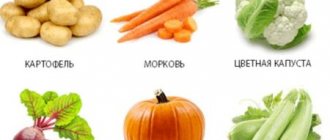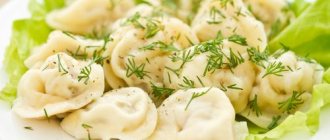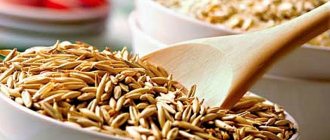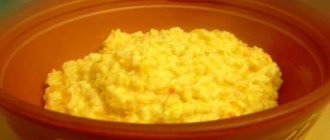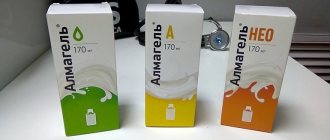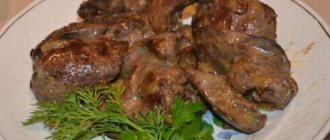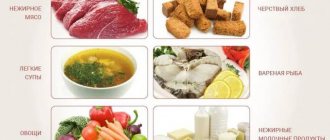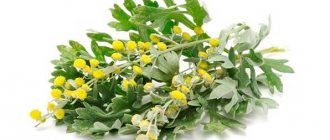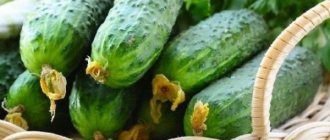There is no person who does not know that tea is a healthy drink that, in addition to taste, has healing benefits. There are several varieties: Chinese, Indian, Ceylon, and each of them has its own taste and medicinal properties. There are also many brewing recipes: using the leaves of the tea bush, collections of roots, herbs and flowers, drinking based on which we also call tea. These decoctions help treat both colds and serious pathologies of internal organs. But is it possible to drink tea for pancreatitis, and what tea is suitable for the pancreas?
Composition and beneficial properties of tea
The raw material (tea leaves) contains about 300 chemical elements, which are divided into soluble and insoluble. Soluble are:
- essential oils that help fight disease,
- alkaloids that stimulate the nervous system, but do so more gently than coffee,
- pigments, amino acids and vitamins.
Insoluble enzymes are pectin and carbohydrates. Only stale tea, bagged or with aromatic additives, will not bring benefits. Essential oils also have different effects on humans.
Is it possible to have tea for pancreatitis?
Tea can be drunk by anyone whose manifestations of pancreatitis have already become chronic. If you have pancreatitis, you can drink not only black, green tea, oolong or pu-erh. Hibiscus and fruit drinks are allowed to a limited extent. Rosehip is a priority.
Black
Pectins, which are contained in tea leaves that have undergone long-term fermentation, have a beneficial effect on digestion and prevent indigestion. But you should not drink it brewed strongly, as this can lead to pancreas spasm.
Green
More useful than black. It contains tannin, which can support vitality, tones the immune system and promotes the absorption of ascorbic acid. Therefore, it is better for those suffering from pancreatitis to give preference to this variety.
White
People with pancreatic problems can choose white tea for pancreatitis. This variety is superior in its beneficial properties to black and green and has a positive effect on the body. When producing this tea, only the top leaves of the tea bush and young buds are collected. It undergoes minimal processing, so almost all the beneficial substances remain in it. Its only drawback is its high price.
Yellow
For pancreatitis, it has an antispasmodic effect. It also helps the body fight infections, headaches, invigorates, and clears the mind. For many years, Chinese emperors enjoyed the privilege of drinking this tea, and the method of its production was kept strictly secret. Yellow tea contains amino acids, polyphenols, vitamins, and microelements.
Red (oolong)
For pancreatitis, this drink soothes the irritated pancreas. Additionally strengthens blood vessels and prevents the development of thrombophlebitis. Experts classify Oolong as something between black and green tea. It has the bright aroma of green tea, but has the rich taste of black tea. Oolong is rich in vitamins, microelements, and has a high polyphenol content. It contains manganese, which promotes better absorption of vitamin C by the body.
Pu'er
Pu-erh occupies an important place among the varieties of pancreatic tea. It fights digestive system disorders better than all other varieties and improves metabolism in the body. Gastroenterologists recommend consuming pu-erh for people with peptic ulcers, as it gently reduces stomach acidity and promotes better absorption of food.
Each of these varieties is allowed to drink up to 5 glasses per day during remission.
This is not the entire list of varieties. It is best to discuss what tea you can drink for pancreatitis with your doctor.
Other examples
If the doctor has forbidden you to drink tea for pancreatitis, the drink can be replaced with others. The use of hibiscus, rose hips, and fruit teas significantly reduces the manifestation of chronic pancreatitis.
- Hibiscus is a red drink made from the dried leaves of the Sudanese rose (hibiscus). You can drink this tea, but with caution due to the property of hibiscus to increase the acidity of the stomach, which is undesirable during periods of exacerbation of pancreatitis. It contains a large amount of antioxidants, so consuming hibiscus a few days after an attack of pancreatitis will help replenish the salts and trace elements lost during stool disorder. 1-2 cups per day are allowed.
- Rosehip decoction, like hibiscus, has a sour taste. It is allowed to be used during an exacerbation of pancreatitis, but only weakly. This drink contains a large amount of ascorbic acid, which can irritate the gastric mucosa, and also has a choleretic effect. A few days after an attack of pancreatitis, rose hips will help relieve spasm and inflammation, normalize metabolism, and promote organ regeneration. Rose hips are drunk 50 g 3-4 times a day.
- Fruit tea is a drink made from fruits and berries by brewing them with boiling water. It can be prepared from fresh, dried and frozen products. It is worth distinguishing it from tea with fruit flavors. Flavorings, as a rule, are not natural, and instead of the expected benefits, they can cause allergies. Homemade fruit drink is fortified and has a pleasant taste. But doctors do not recommend drinking this tea for pancreatitis immediately after an exacerbation, since it increases acidity and irritates the inflamed pancreatic mucosa. Patients with chronic pancreatitis are allowed to drink one or two glasses of fruit drink a day, but not during an exacerbation and not on an empty stomach.
For pancreatitis, it is recommended to prepare jelly and jellies from fruits, which are better absorbed and have a gentler effect on the mucous membrane of the digestive organs.
Chicory
The grass and roots of this plant help with gastrointestinal disorders. Chicory has choleretic properties and is able to dissolve a small amount of stones.
A decoction helps well with chronic pancreatitis:
1. Pour two teaspoons of chopped chicory root into a glass of boiling water.
2. Place on fire and boil for five minutes.
Drink the strained and cooled broth in small sips throughout the day.
You can also drink ground roasted chicory as a coffee substitute.
source
What you can and cannot add for taste
With pancreatitis, the diet is very limited. Those who want to treat themselves a little with tea additives need to know the following important points:
- Lemon. People suffering from pancreatitis, unfortunately, will have to abstain from tea with lemon. Despite the large amount of vitamins in these fruits, a high concentration of citric acid will cause severe irritation of the pancreas and trigger the process of increased enzyme secretion.
- Milk. Having chronic inflammation of the pancreas, patients try not to drink whole milk. But low-fat pasteurized milk is allowed to be added to tea. This reduces the concentration of both components.
- Honey. In case of chronic pancreatitis, it is allowed to drink tea with bee products. Pancreatic enzymes are not used to break down the fructose in honey, so it remains alone. Honey has a mild laxative effect and helps cope with constipation, a manifestation of pancreatitis. It is a good antiseptic and natural immunostimulant. But you can introduce it into your diet gradually, starting with half a teaspoon a day and monitoring your well-being.
- Ginger. Ginger root is a spice that is contraindicated for people with gastrointestinal diseases. Ginger causes irritation to the gastric and pancreatic mucosa. Ginger contains gingerol and essential oils that activate the secretion of the gland. Tea with ginger can cause severe pain, spasm and death of pancreatic cells.
- Cinnamon. The addition of cinnamon to the food of patients with pancreatitis should be limited during the period of exacerbation of the disease, since cinnamon can increase internal microbleeding of the pancreas. But during the period when the disease has receded, tea with cinnamon will saturate the cells of the whole body with oxygen, help remove abnormal cholesterol, and normalize the activity of the pancreas. It's still not worth eating cinnamon every day.
- Stevia. During the acute period of pancreatitis, many foods are prohibited, including sugar. But for those who are used to drinking sweet tea, there is a way out - stevia. This plant, which makes the stevioside component sweet, does not raise blood sugar levels and does not activate the pancreas. Unlike sugar, stevia has 0 calories.
Yarrow
Helps the functioning of the pancreas, promotes the outflow of bile, and has an anti-inflammatory effect.
Brew six grams of herb with a glass of boiling water and drink three times a day before meals. You can also prepare a herbal mixture:
1. Mix a teaspoon of yarrow, celandine, and calendula.
2. Pour two glasses of boiling water.
3. Leave to brew overnight.
Drink one third of a glass of strained infusion half an hour before meals.
Herbal tea for the pancreas
Herbal teas occupy a special place in the treatment of pancreas. They contain many medicinal plants, various combinations of which give their positive effect.
Monastic teas
Monastic tea has an analgesic effect, reduces intoxication, and normalizes intestinal motility. It is useful for its constituents: burdock, wormwood, elecampane roots, chamomile, calendula, St. John's wort, string, and sage. You need to take monastery tea 3 times a day, 50-70 ml. Treatment must be carried out in a course, the duration of which is determined by the doctor. As a rule, this is 1 month.
Father George's tea for pancreatitis is also sometimes called monastic tea. Among the many medicinal plants included in its composition, one should highlight a sequence that normalizes the production of necessary hormones by the endocrine glands. Brittle buckthorn eliminates stool disorders, normalizes the functioning of the digestive system, and under the influence of linden blossom, the pancreas activates the secretion of insulin.
Pancreatic phytocollections
Herbal tea for the pancreas can be bought at the pharmacy in a convenient form:
- Herbal collection “For diseases of the pancreas” heals the organ, normalizes digestion, improves metabolism.
- Herbal collection No. 26 also has the above functions, but also has an antispasmodic effect and has an anti-inflammatory effect.
- Herbal tea No. 13 is distinguished by its ability to envelop the pancreatic mucosa and thereby heal microcracks, reduce heartburn, and maintain normal intestinal microflora.
- Pancreatic herbal tea “Keys of Health” has an antimicrobial effect, activates enzymes, and gently regulates blood sugar.
Homemade recipes for pancreatitis deserve special attention. Pancreatic tea is prepared from St. John's wort, motherwort and peppermint, taken in equal quantities. There is also a simple recipe that includes valerian (30 g), elecampane root (20 g), violet flowers (10 g) and dill seeds (10 g). Brew everything with half a liter of water, infuse it and drink it, strained, throughout the day. Herbal preparations must always be prepared fresh, and the prepared drink must be stored in the refrigerator.
Herbal infusions are drunk in courses. Unless the doctor prescribes otherwise, drink the infusion every day for a month, monitoring your well-being. If pain, nausea, or heartburn appear, treatment should be stopped and a gastroenterologist should be consulted.
Selected herbs for pancreatitis
You can brew one herb at a time. This way you can determine if you are allergic to the components of folk remedies:
- Ivan tea has been used for the pancreas for a long time. This plant contains tannins, vitamins and microelements that stop or prevent necrosis of pancreatic cells, prevent inflammation from spreading, and tone the walls of blood vessels. Also, the herb Ivan tea has an analgesic effect and normalizes the production of hormones.
- Chamomile tea has long been used for medicinal purposes. During an exacerbation of pancreatitis, chamomile reduces pain, has a pronounced anti-inflammatory effect, eliminates bloating, and relaxes spasmodic muscles.
- Mint is also used in folk medicine. It has a sedative and hypnotic effect. Peppermint tea for pancreatitis relaxes the stomach muscles and has an antispasmodic effect on the pancreas.
Yelan
Indications for drinking the Elan tea drink are diseases of the digestive system, including chronic pancreatitis, insufficiency of gastric juice, enteritis and gastroenteritis, peptic ulcer. The drug is distributed through pharmacies and stores, its price does not exceed 80 rubles.
The drink contains the following herbs:
The pharmacological action is similar to the action of previous formulations. The product allows you to achieve an analgesic, anti-inflammatory, antispasmodic, regulatory, stimulating effect. Used for treatment and prevention.
The drug is manufactured in Altai and distributed in loose cardboard packaging. The mass of the mixture in one pack is 40 grams. The drug retains its medicinal properties for 2 years from the date of manufacture.
Note: there is an opinion that teas based on medicinal herbs have a preventive antitumor effect. Such statements by traditional healers have not received official confirmation or refutation.
We recommend that you familiarize yourself with other folk remedies for the treatment of pancreatitis:
Recipes for making a delicious drink
Let's look at several recipes that will add variety to the meager menu of a patient with pancreatitis.
Recipe No. 1
- Green tea – 2 tsp,
- stevia leaves, peppermint - 4-5 pcs.,
- chamomile flowers – 1 tsp.
Pour boiling water over the teapot, mix the ingredients, pour in 400 ml of water at a temperature of 90 degrees. Let it brew for 30 minutes. Serve warm.
Recipe No. 2
- Peppermint leaves – 1 tsp,
- yarrow herb – 1 tsp,
- dried apples (slices) – 5-7 pcs.,
- calendula buds – 1 tsp.
Mix all the ingredients, add 400 ml of water (90 degrees), bring to a boil, let it brew for 30 minutes. Strain and drink warm.
Recipe No. 3
- Green tea – 2 tsp,
- raisins – 1 tsp,
- chamomile flowers – 1 tsp,
- hawthorn berries – 2 tsp.
Mix the ingredients, pour in 400 ml of boiled water cooled to 90 degrees, let it brew for half an hour. Strain and drink warm. You can add 0.5 tsp. honey.
Plantain
Plantain leaves relieve pain, restore normal metabolism, and fight germs.
Pour a tablespoon of dry plantain leaves into a glass of boiling water. After an hour, strain and drink in three doses throughout the day before meals.
Brew with other herbs:
1. Mix plantain, calendula and tansy in equal proportions.
2. Pour one teaspoon of the mixture with a glass of boiling water.
Drink 50 ml half an hour before meals during the day.
Questions and answers
- Which tea is better - loose leaf or tea bags? It is better to give preference to loose leaf tea, since the tea leaves in bags are crushed, as a result of which its quality cannot be determined.
- Is it possible to have tea with additives and flavorings? Aromatic artificial additives are harmful to the body as they can cause allergic reactions. Adding various components to tea can also lead to unwanted effects in people with a diseased pancreas. It is necessary to carefully read the composition of the tea before purchasing.
- Can I drink hot tea? What temperature is best? It is not recommended to drink tea hot (as well as to eat hot dishes), since the drink can additionally irritate the inflamed mucous membrane of the stomach and pancreas. A comfortable temperature will be 50-55 degrees.
- Is it possible to drink kombucha if you have pancreatitis? Doctors do not recommend drinking kombucha for patients with pancreatitis, since it contains many different acids that can destroy the pancreatic mucosa, and the sugar present in this drink triggers the endocrine function of the pancreas.
- Why does my pancreas hurt after drinking tea? If you feel a twinge of pain in your pancreas after drinking tea, this may mean that the basic rules of consumption have been violated. It is necessary to observe the temperature of the tea, its strength, temporarily refrain from additives and use only natural ingredients. Then drinking tea will not only be pleasant, but also as useful as possible.
1
General recommendations
- Herbal tea should be drunk only weakly, since trace elements and alkaloids contained in the leaves contribute to the release of enzymes that corrode the pancreas.
- stomach tea for pancreatitis without sugar, since the consumption of glucose in this disease should be limited.
- For pancreatitis , drink tea without flavored additives to avoid synthetic substances entering the pancreas.
- Drink tea in the morning to stay in good shape and not overload your pancreas in the evening.
Remember that pancreatitis is a serious disease that can have disastrous consequences for the entire body if you do not consult a doctor at the first sign. Strictly follow all recommendations of specialists and do not treat yourself. Drug treatment, fasting and herbal decoctions will help you fight this dangerous disease. And to prevent the occurrence of the disease, eat right and lead a healthy lifestyle all the time.
source
